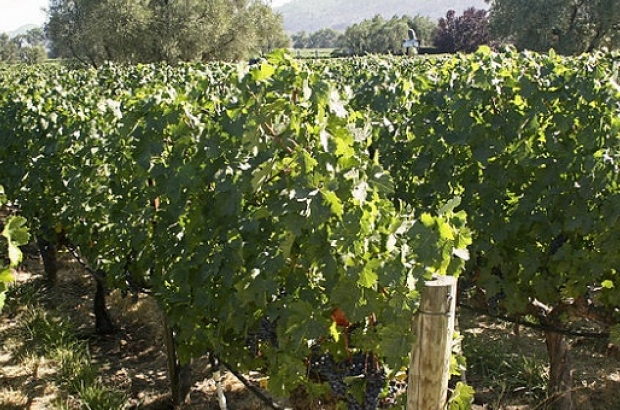- Daily & Weekly newsletters
- Buy & download The Bulletin
- Comment on our articles
Naturally yours
Food & drink journalist Nina Caplan explains the difference between natural, organic and biodynamic wines and discovers no sour grapes – only ‘green’ ones.
Look beyond the lovely liquid in your glass, and wine has always been exceptionally complicated. Some find this exciting – always more to learn, no matter how much you know – but for others it can seem like a secret code, and the current fuss over natural, organic and biodynamic wine doesn’t help. Natural wine? What, pray, is unnatural wine? It’s all pressed fermented grapes, isn’t it, and what could be more natural than that?
In fact, it’s easiest to see natural wine as part of the organic food debate. Wine has its big business too: companies who grow or buy in vast quantities of grapes process them as rapidly and efficiently as possible, which means spraying chemicals to keep them healthy, harvesting with machines, adding sugar (in cool regions), acid (in warm ones), or oxygen to achieve consistency. Winemakers who reject these methods, who eschew all additions, keep grape yields low (which prioritises quality over quantity) and harvest by hand, call their product natural. A very small amount of sulphur dioxide, to keep the wines stable and bacteria-free, may be added, but it is strictly regulated. Just to confuse things further, those who grow grapes organically (no matter what they then do to those grapes in the winery) may refer to their wine as organic. “Obviously, organic wine is gaining ground, but there is still a long list of additives a wine producer can add to his fermenting juice,” explains Jérôme van der Putt, author of Vin Bio: Mode d’Emploi, adding wryly “it’s a rather complicated topic!”
Of Belgium’s 20-odd wine producers, only Hageling makes natural wines. They have done so since they started in 1993. “Our winemaking is pure idealism,” says Greet Bernar, who co-owns Hageling with her husband Hugo. “We wanted to prove that winemaking was possible without chemical fertilizers, fungicides and pesticides.” Their production is tiny: just 5,000 bottles a year. To put this in context, Belgians drink on average 36 bottles of wine a year which means Hageling could supply just 138 people.
Some natural wines are wonderful: they celebrate the land, the fruit grown on it, and the craft and precision that are so much more important when you can’t just slather your product in chemicals and other additives if things go wrong. Some, of course, aren’t. And for those winemakers who go the whole hog and follow biodynamic rules, things are even harder. A concept originated by the early 20th-century Austrian philosopher Rudolf Steiner, biodynamic winemaking involves paying attention to the rhythms of the sun and burying herbs and minerals packed into cow horns beneath the vineyard according to the phases of the moon.
While it’s hard to understand what all the fuss is about with natural wine – sourdough bread is all-natural too, and nobody seems quite so hot and bothered about that – the biodynamic rules are easily mocked. Supporters claim that while natural or organic farming causes no damage, biodynamic farming actually helps replenish our poor planet. And it is worth bearing in mind, before you sneer, that some of the world’s top wine estates, including Romanée Conti and Chave, now produce their wines biodynamically. Pascaline Lepeltier, sommelier of Rouge Tomate in Brussels and New York, is a fan of all three kinds of winemaking. “What I love in wine,” she says, “is its ability to be not just a drink but a vessel that carries a sense of place, of history, of culture and of craftsmanship. And this is achieved, for me, by wines produced in the most simple way, without additives. So our list is built from great natural, organic and biodynamic wines from everywhere, decently priced, and nobody complains!” Not even of a headache the next day – some people believe that low sulphur levels reduce the likelihood of a hangover. So that’s a clear head and a clear conscience: small wonder natural wines are gaining ground.
If you want to try natural, organic or biodynamic wine in Brussels, check out the following:
Restaurants/Bars
Rouge Tomate
190 Avenue Louise
Brussels (Ixelles)
Tel 02.647.70.44
A bout de Soufre
11 Rue Tasson Snel
Brussels (Saint-Gilles)
Tel 02.537.27.00
Shops
Basin & Marot
90A Rue du Page
Brussels (Ixelles)
Tel 02.347.64.66
La Boîte des Pinards
16-18 Rue de la Glacière
Brussels (Saint-Gilles)
Tel 02.347.23.03
Sequoia Uccle
532 Chaussée de Saint-Job
Brussels (Uccle)
Tel 02.379.01.90
For more information on Hageling Wines, visit www.hageling-bio.be









